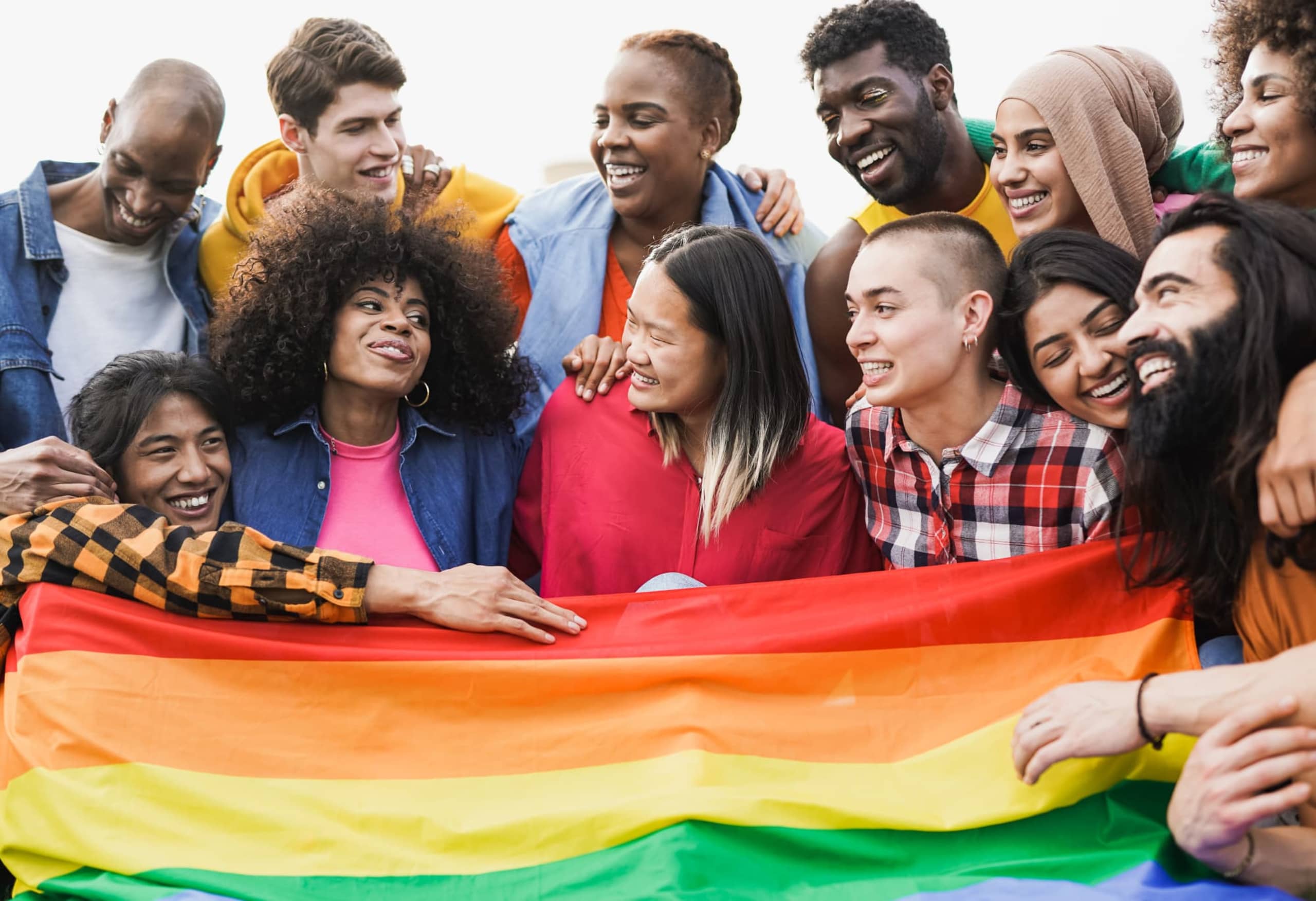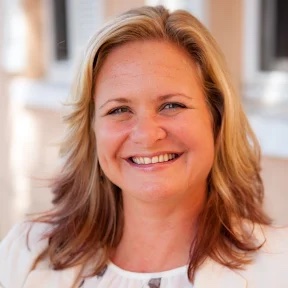What My Greek Life Experience Taught Me About My LGBTQ+ Identity
I just wanted to fit in.
Being thrust into the new world of college is a relentless and fast-moving process for first-year students, laced with desperation for two social requirements: connection and belonging. Greek life, then, has a natural appeal, for it essentially promises the fulfillment of these needs. Recruitment only reinforces this idea and supplements it with promises of inclusivity, acceptance, and support. It’s a pretty picture, and, like many others, I fell for it.
My college is a predominately white institution, though the sorority I joined was known for being more inclusive than the other campus chapters, regardless of a student’s race, sexuality, body type, or other diversity-related characteristics. As a plus-sized LGBT+ person, it was the natural and easy choice.
At first, it was great. I didn’t know everyone in my member class, but there were three and a half more years left for me to amend that. The sorority house was cozy with a large couch and a fireplace in the living room. Most importantly, everyone was nice. Often, I’d find myself sitting in the living room and laughing with those I felt a connection with — or so I thought.
I lost a lot during that time, probably more than I’ll ever realize. But I can simplify it into two main things: I lost parts of myself and I lost every fight I attempted to start towards improving equity within the community.
Trying to Fit In
This was still around the time new students were doing absolutely everything they could to fit in. Maybe, in retrospect, it wasn’t so great. I just wanted it to be. Like everyone else, I yearned to find my place and convinced myself I had found it. I changed myself in order to fit into a picture not made for me. That’s as unsustainable of a path as they come.
It was only natural that, over time, I felt uncomfortable. But at first I thought I was the problem. The very notion struck old fears into my heart. If I don’t fit in here — a place that markets itself as the place to come to fit in — then my sense of connection and belonging are once again at risk. So I changed myself more.
My identity morphed into the straight, skinny, and Instagram-able type when I was none of the above. I fully submerged myself in the role I wanted to be, doing my best to flourish in this new identity that I thought would make me fit in.
I sought out my sisters. I went looking for the inclusivity, acceptance, and support I was promised. And I got it in the form of smiles, nods, and words of encouragement. Temporary assurances, but I listened. Still, it wasn’t enough, so I decided to do everything to fit in.
And I mean everything.
I lived in the house, hung out by the fire in the living room often, joined the chapter’s executive board, and even got on the overarching Panhellenic Council that oversaw all the sororities on campus. I thought that all of that was working, but it wasn’t. None of it was.
I didn’t even realize it wasn’t working until long after I disaffiliated. At the time, I was convinced this was the way for me to find my place. I prioritized everyone else’s thoughts and feelings about me — to me, if I didn’t fit in that picture, then I’d never fit in at all, anywhere.
Trying to Make a Change
I was on this path for a while. I only opened my eyes to it when I began to do my job on the Panhellenic Council. As the DEI chair, it was my job to handle basically everything in regards to diversity and inclusion for all of the Panhellenic community, with only a small outline of what my predecessor did in the prior year.
I had so many ideas: an open forum for the college community to directly tell Greek leadership their impact on campus, dual matching surveys where one would be sent just to Greek members and the other to campus students (the answers would be compared to qualitatively see Greek life from an outside perspective), mandatory intersectional training on anti-racism with a special focus on institutional racism, and many others.
All of them were shot down. It was either the other officers didn’t want to do it, or I would need to jump through every hoop each chapter threw at me. My advisor told me that change had to come about from the bottom up, but I couldn’t get members of the chapters I was overseeing to care. I was beginning to feel the defeat personally, but the others would still smile, nod, and give me words of encouragement.
That’s what they always do, I know now. They listen to you, but you’re not heard. They smile, nod, give you words of encouragement, and hope you never bring it up again. My sisters did it, and the officers were doing the same thing. That’s the thing with Greek life: image.
Of course they’re going to pledge to make a difference. Smile and nod and swear they’re here for you. Because they have to. They have to market their inclusivity, acceptance, and support. Whether they follow through with it is an entirely different story. Here, at my college, actions never followed words at any level.
Remembering My LGBTQ+ Identity
Something to keep in mind through all of this is that I’m privileged within the Greek community at this point. I’m white and, at the time, I was cisgender. There were only a few people of color within the Greek community. And if there were any other gender non-conforming people, they certainly weren’t out yet. Everyone was trying to fit into that image, remember? If I was being ignored, then the small, small number of students of color were far worse off.
As my faith in Greek life dwindled, I realized I had not only stopped thinking about the identities I carry, but I’d forgotten them entirely. All that mattered to me was Greek life, fitting in, and making it better. It became a pillar of sorts, whether I wanted it to or not. That pillar, turns out, was an anchor to my growth. I was convinced I was both a woman and straight, for those were the things to be.
How can I not be a woman and be in a sorority? Especially when the overarching council won’t even hear my petition to initialize a Trans-Inclusion Task Force. Impossibilities stacked upon impossibilities.
Greek life is an intricate and long-standing institution — both country-wide and at my university. However, in many ways it represents elitism, the gender binary, racism, and a plethora of other inequities. It was a Goliath I knew my David couldn’t defeat, so I disaffiliated.
No one picked up my work after I left, yet they still mentioned it in their marketing for this most recent year’s recruitment. Would my work have completely changed Greek life? No, nowhere close. But at the very least, it would have ensured those questions were asked and those conversations were being held. Now, I’m not so sure they are.
Lessons Learned
Greek life isn’t going anywhere at my school. Every year, it takes in new students looking to fit in like I was. Perhaps many do, but not all of them. There might be a “me” in there somewhere, convincing themselves they are both a woman and belong where they do, spurred by empty, temporary assurances. They just want to fit in. I get it. But I don’t want them to go through what I had to — the shock of realizing you need to refind yourself and recover what you intentionally let go of to belong.
Of course, Greek life and the individual can co-exist independent of identity. Not everyone’s experience will be mine, but let me tell you this. Consciously or not, one succumbs to the image of Greek life on some level. Fitting in may not be so physically, mentally, or emotionally obvious, but it’s there. It always is.
If Greek life isn’t going anywhere, it needs to acknowledge and understand the harm it creates and perpetuates for marginalized students. It’s only then that it has the potential to begin working to be a safer place. That’s a long, untrodden road, though.
Why? Well, because everyone just wants to fit in. It’s only when you realize that you shouldn’t bend to the world — the world should bend to you — that you break from the grips of conformity.

Meet the Author

I (they/she) graduated in the spring of ’22 from Lehigh University with an integrated degree of engineering, arts, and science and a theme of “Engineering as Ethics.” I worked as a student staff member at Lehigh’s Pride Center for Sexual Orientation & Gender Diversity for three years and as an executive board member of Out in STEM, all the while developing a devotion to social justice and equity. My studies focus on engineering disasters and the fusion of technology and human physiology. I start law school in the fall at the University of New Hampshire Franklin Pierce School of Law.
Explore More College Resources

Best Colleges for LGBTQ+ Students in 2024
The increased visibility of LGBTQ+ students on campuses has increased the need for support networks. Here are the top-ranked colleges for LGBTQ+ support.

by Cobretti D. Williams, Ph.D.
Updated December 12, 2024



